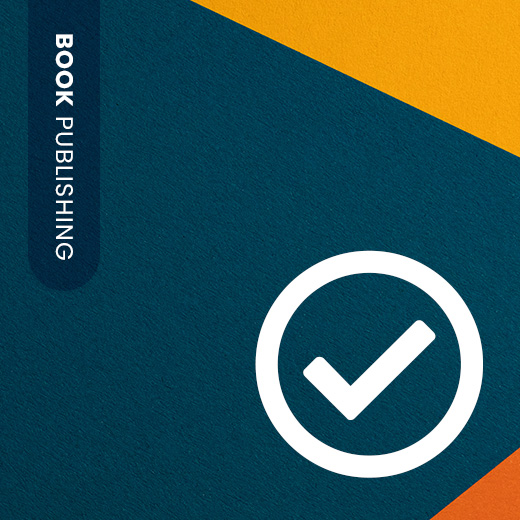Home » Book Publishing » How to Spot and Avoid Book Publishing Scams
How to Spot and Avoid Book Publishing Scams
Publishing can be confusing, and recognizing the differences between a legitimate opportunity and a scam is becoming more challenging, especially with the rise of companies targeting self-published authors. Scams have become alarmingly common in recent years, with bad actors using deceitful tactics to catch unsuspecting authors. They promise Hollywood deals or high-profile book placements that are just too good to be true.
This article will help you:
- Spot the scams
- Recognize legitimate literary agents and agencies
- Understand how Hollywood works when a book is optioned
- Stop them from contacting you
How Do Scammers Fool Smart People?
Scammers prey on authors’ hopes and dreams. They know what authors want to hear, such as a “Book Scout” has noticed their book or their work has “great potential.” These flattering statements make any author feel good, but the truth is, the scammers haven’t read a single page of your book. Instead, they use fake job titles and false claims to get your attention.
What to Look for to Identify a Potential Scammer
There are a few red flags that authors can look for to determine if the individual or company contacting them is a scammer. These include:
- Suspicious Email URLs: Legitimate companies have their own domain for their email address, matching their business name. If you see an odd email address with hyphens, extra words, or a generic domain like “Gmail”, be wary. This is often a sign of a scam.
- Misuse of Logos and Names: Some scammers will go as far as to use the logos of real companies on their website or email. They may also impersonate real people to gain your trust. This is both misleading and illegal but they’re willing to do it to scam unsuspecting authors.
- Generic Comments About Your Book: Scammers don’t take the time to read your book or even your book description to understand the genre and if it’s a good fit for the opportunity they are presenting. If they use generic language and only mention your title without anything else specific about your book, it is likely a scam.
How to Know if You’re Dealing with a Real Literary Agent
One of the most common scams is for an individual to pose as a literary agent, asking to represent your work. Here are the signs of a real one:
- Real literary agents don’t contact authors unsolicited. They’re too busy reading submissions from authors who have already contacted them.
- Legitimate agencies have websites that list their clients and the books they’ve sold. Scammers may have testimonials but no concrete information on book deals.
- Submission guidelines matter. Real literary agents will clearly state how they want submissions (query letter or book proposal) and which genres they represent.
- They never ask for money upfront. Real literary agents earn commissions only after they sell your book to a publisher. If an “agent” asks for payment, it’s a red flag.
If someone claiming to be a literary agent doesn’t mention your book’s genre, offers paid services, or asks for upfront fees, you’re dealing with a scammer.
How to Recognize Legitimate Hollywood Opportunities Scammers
With Hollywood looking for new stories to adapt to screen, scammers are targeting authors hoping to see their books made into a film or TV show. Here’s how to know if the offer is legit:
- They ask about the development rights. A real company needs to know if the rights to adapt your book are available because they can’t option your book if they aren’t. If they don’t ask, that’s a red flag.
- They don’t sell services unless there’s a real partner. Real companies may offer to help you develop your book for the screen, but they’ll only do so if they have connections with production partners who will read your book.
- Their pitches are targeted. In Hollywood, pitches are specific to certain outlets based on the type of story. Scammers often say they’ll send your book to a broad list of companies, which is a useless strategy.
If someone contacts you saying there is a production budget already set for your book, it is a scam. Production companies cannot set a budget until they have a script, a director, actors cast, and film locations determined.
How to Handle and Mitigate Scammers
If you’ve been contacted by someone you think is a scammer, here’s what to do:
- Stay in control. Don’t let your excitement cloud your judgment. Take your time to research anyone who contacts you.
- Be wary of too-good-to-be-true offers. If it sounds like a dream come true, ask for specifics. If they say a “Book Scout” has flagged your book, ask for details on why it stood out. Most scammers won’t be able to answer.
- Ask to be removed from their list. Politely ask to be taken off their call and email list. Real companies will honor this request, scammers won’t.
- Threaten to report them. If they don’t stop contacting you, tell them you’ll report them to the Attorney General’s Office for violating consumer protection laws. This may stop them from contacting you.
Following these tips will help you avoid scammers, but we still encourage you to stay vigilant. Publishing scams are like weeds—just when you get one under control, another will pop up. With this knowledge, you can protect yourself and get on with what really matters: getting your book out there.

Don't let your manuscript sit idle
start your publishing journey now!
Get matched with a self-publishing company specifically chosen for you and the book you are publishing.
Don’t let your manuscript sit idle – start your publishing journey now!




